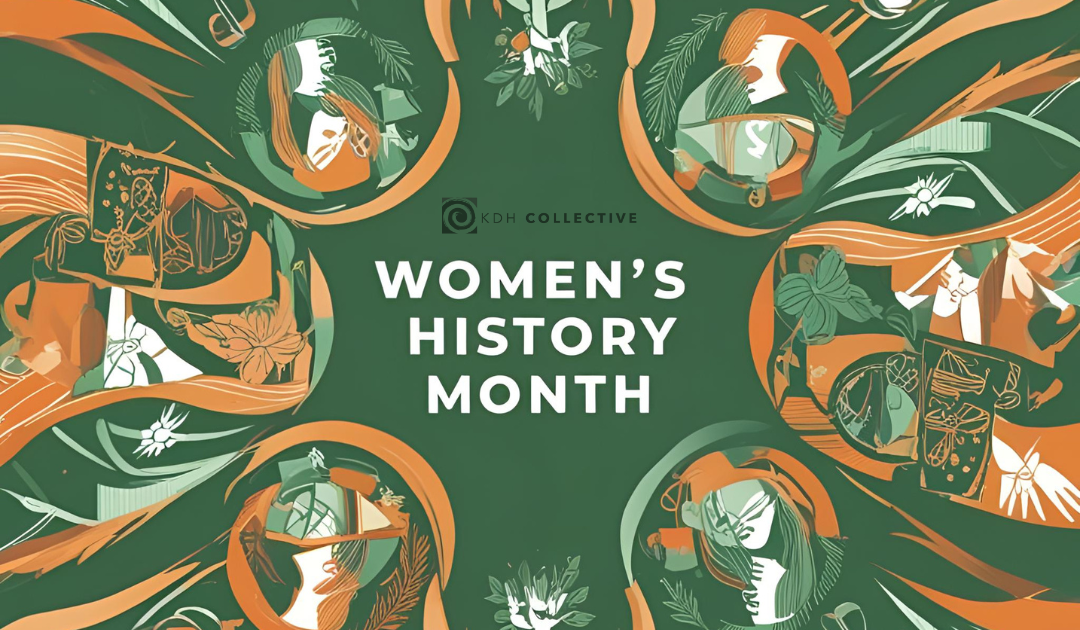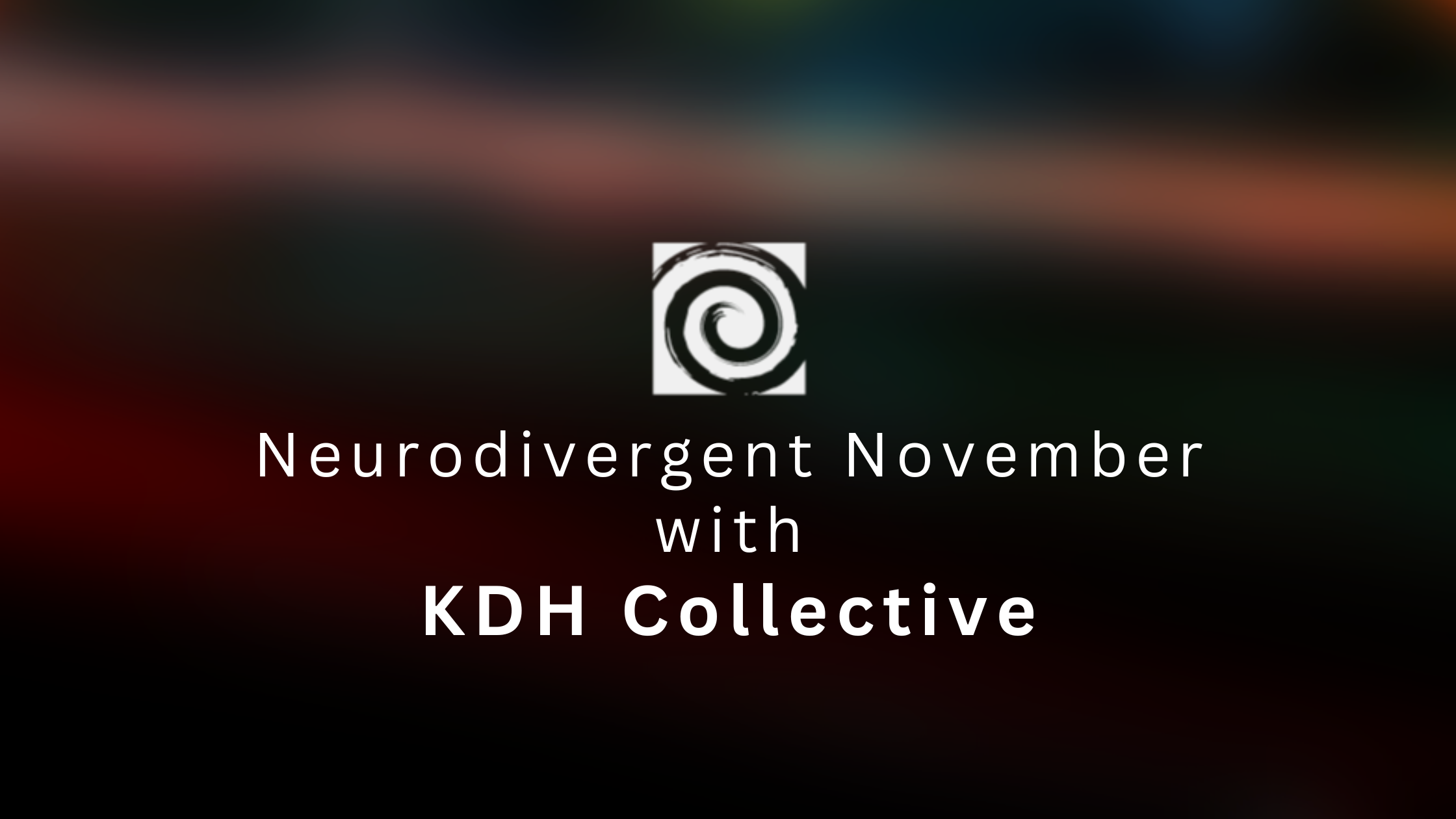Hurt people hurt people? When Good Therapists Cause Harm
In working with a diverse range of helping professionals, including undergraduate psychology students, fellow counselors (and other mental health...

It's a striking truth: women are both the primary consumers of mental health services and the backbone of the mental health profession. Here at KDH Collective, much like the broader landscape of therapy, we're a team predominantly comprised of women. As we dive in to Women's History Month, this reality prompts us to reflect deeply on the unique dynamics at play within the therapeutic space.
We've gathered, as clinicians and as women, to engage in conversations about the multifaceted issues impacting women's mental well-being. We're exploring the subtle and not-so-subtle ways gender influences the therapeutic relationship, the vital considerations we keep at the forefront of our work, and the strategies that empower us to provide truly gender-responsive care. We invite you into the conversation through this blog.

"One thing we know from the research is that women are more likely to have experienced trauma, to have diagnoses of depression and anxiety, and also to seek help. I work with many women in the therapy room who have long histories of trauma and difficulties that impact them in really salient ways…and many of my clients have been misdiagnosed and missed in diagnosis, which has led to their struggling for WAY longer than necessary. I love that here at KDH we are so focused on continued learning, so I can be better at working with trauma, and that we are such a close-knit team. It’s such a relief to know that if I need extra support for a client, there’s someone else who can offer that support."

"Many women use substances to escape thoughts and memories of events, especially traumatic ones. Oftentimes women use at a much earlier and accelerated rate than men do; for example, they tend to binge drink more than men. The problem of using substances exacerbates the trauma, only adding more trauma if the individual can not stop. Treating the trauma along with the substance use is vital for quality of life. The only way out of trauma is to go through it. Many behavioral approaches combined with either EMDR or Brainspotting can target the trauma and the substance use at the same time. It takes work, but the result is a better life that includes finding peace and joy again. Those are priceless qualities to have when you have lived a life of shame, blame, and low self-worth."

"While OCD and Body-Focused Repetitive Behaviors (BFRB) such as skin picking and hair pulling can affect any gender, women are often impacted in specific ways. For example, women can experience OCD after childbirth and around caring for their children. Women also report struggling with the effects of BFRB like skin-picking and hair-pulling on their physical appearance. These impacts can take an additional toll on self-esteem and self-confidence. The good news is, there is help. I find using ERP with clients with OCD and IBT with BFRB clients has been very successful, and people get better. Their self-confidence is improved, and clients can live a more meaningful life, instead of allowing their worlds to get smaller."

" I am truly fortunate that I can witness the entire gender expanse with the work that I do with my clients. I’ve come to understand that womanhood is infinite and while there are some universal truths, it can also be a deeply personal experience to be a woman living in this world. For my clients who are at the intersection of womanhood and neurodivergence it’s been absolutely a gift to provide psychoeducation on how they have, perhaps, arrived rather late to their understanding of their own neurodiversity."

"The big one that shows up for me in the therapy space is the difficulty of differentiating between trauma, queerness, and neurodivergence (primarily ADHD and Autism). Many of the measures for Autism and ADHD that clinicians are using are based on criteria and experiences of white men and boys, and as such, they are likely to miss many women and queer folks. In addition to the Autism Quotient (AQ) and Adult ADHD Self-Report Scale for DSM-5 (ASRS-5) measures, I also like to use the Ritvo Autism Asperger Diagnostic Scale - Revised (RAADS-R) and the Camouflaging Autistic Traits Questionnaire (CAT-Q). These additional measures offer a perspective on “subclinical” Autism traits that other measures may not."

"Gender identity is essential when it comes to helping people, but there is another type of “identity” that goes with the stigmatization of people who struggle with trauma and addiction. Labels such as “damaged” or a “junkie” are often used to classify these individuals and soon become the individual's identity, which begins the cycle of negative cognitions. The stigmatization that comes with these labels can crush someone's hope, and they may continue to spiral down with the inability to ask for help due to low self-worth and esteem."

"According to the TLC Foundation for Body-Focused Repetitive Behaviors, women are more likely to present clinically with a BFRB such as hair pulling. It's important to note though, that these types of behaviors are vastly under-reported in general, so it's entirely possible that men are just not reporting them as much! It's important to know what questions to ask to assess for a BFRB in order to get a solid functional assessment."

"I think I have somewhat an unorthodox answer to this in that while I believe assessments have their place, I do not necessarily place a great deal of significance on them in my practice or treatment planning. I think I’ve arrived at this understanding because of the research indicating that women, and people of color are often not considered when creating these instruments and subsequently are not wholly represented or given the diagnostic information they deserve."

"I may be a broken record with this one, but the first place I would send folks to learn about gender/sexuality, trauma, and neurodivergence would be Devon Price’s book Unmasking Autism. Then I would recommend attending some of the KDH Collective classes on these topics!"

"Hearing other’s testimony of overcoming these stigmas is the best way to help. Being able to relate to others of the same struggles is a common thread of AA and NA. For reading purposes, I think a good book is The Stigma of Substance Abuse Disorders by Schomerus and Corrigan."

"I think it's important to hear stories of lived experience by women with OCD. The OCD Stories podcast is a great resource."
Want to read more about the topics discussed in this blog? Click the image for more.

In working with a diverse range of helping professionals, including undergraduate psychology students, fellow counselors (and other mental health...

2025 is here - it's a time for fresh starts, new beginnings, and – let's be honest – a little bit of dreaming. As clinicians, we're constantly...

The beauty of being the KDH Collective, a group of neurodivergent clinicians and scholars, is that we have the unique ability to and intense passion...